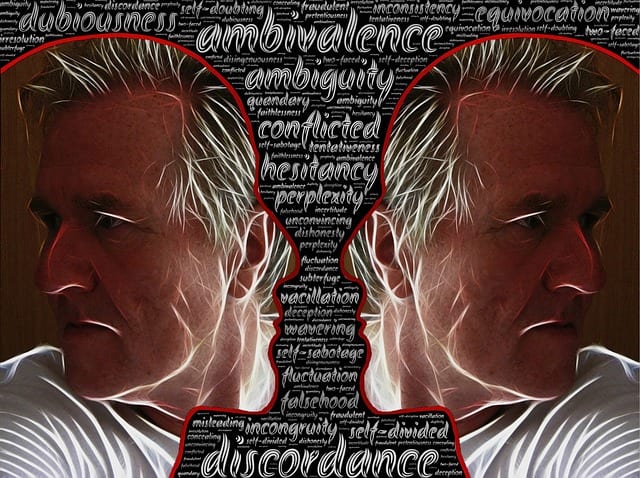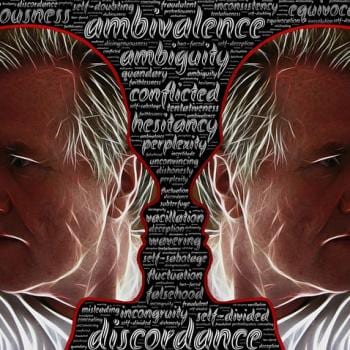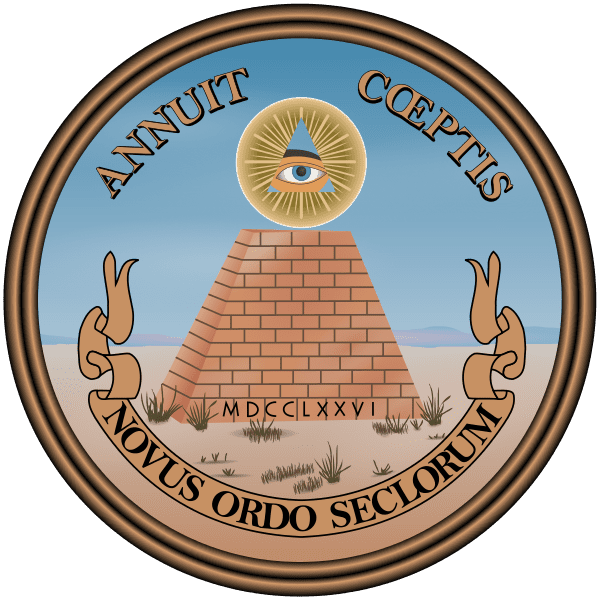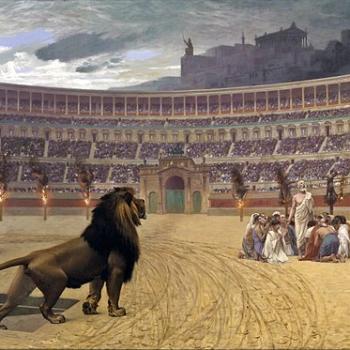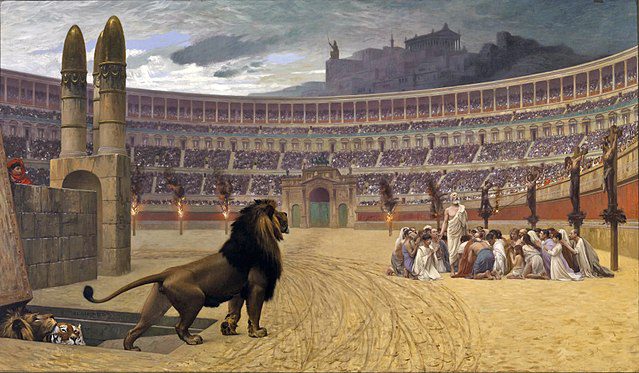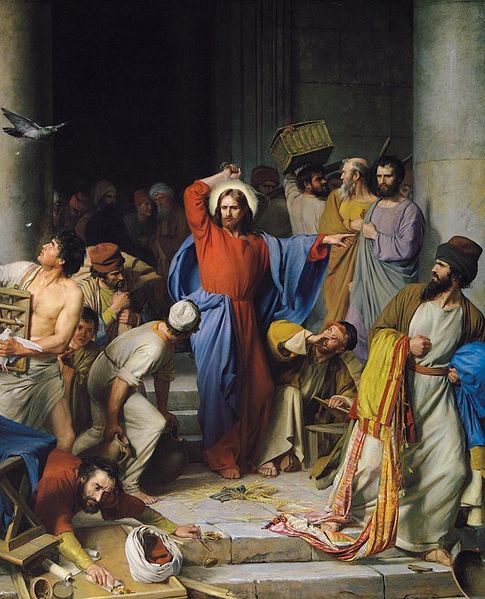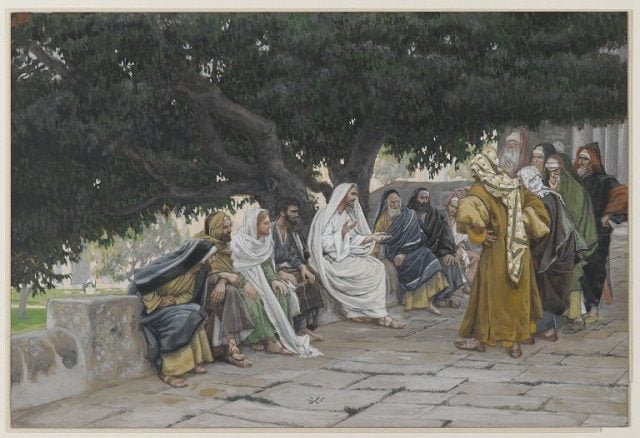
Words of Keith A. Mathison will be in blue.
*****
A fashionable Protestant comeback to the merciless beating that sola Scriptura has been taking over the past twenty or so years from Catholic, Orthodox and conservative Anglican apologists alike, has been the claim that present-day evangelical Protestantism — following the tradition of early Anabaptism and other breakaway sects –, accepts a greatly distorted version of the primal, “magisterial” notion of the mainstream early Protestant leaders (or so-called “Reformers”), regarding the principle of Scripture Alone as the highest infallible authority for the Christian.
Presbyterian Keith A. Mathison (M.A. Reformed Theological Seminary; Ph.D. Whitefield Theological Seminary) is the author of The Shape of Sola Scriptura (Moscow, Idaho: Canon Press, 2001): a book that many Protestants and Catholics alike believe to be the best defense of this more sophisticated, respectable version of sola Scriptura.
According to this view, the distorted solo Scriptura (Latin used in a tongue-in-cheek fashion) is a radically individualistic caricature of the original vision, which had a significantly higher place for an authoritative (albeit non-infallible) Church and Tradition. Thus, when Catholics refute solo Scriptura (heretofore referred to as SOS), they have merely destroyed a straw man, and have left the best Protestant doctrine, or the “real” or “authentic” doctrine (sola Scriptura; heretofore known as SAS) untouched.
I, of course, beg to differ (no surprise there!). I gladly acknowledge that there are several significant and noteworthy distinctions between the two views to be rightly made. I understood this as a Protestant, prior to 1990, when I read about this very issue in knowledgeable evangelical and Calvinist writers like Bernard Ramm, R. C. Sproul, and G. C. Berkouwer.
I greatly appreciate, moreover, the attempt to restore a more respectable rule of faith, which incorporates (or, should I say, doesn’t despise or discount altogether) some semblance of Church history, or, if you will, tradition, and Church authority within its purview.
It’s also refreshing to see a stand taken against rampant sectarianism, individualism, ahistoricism, and anti-institutionalism. Much of this attempt, then, is laudable, and ought to be encouraged in many respects and basically understood as a positive development, by Catholics.
I part company, however, concerning whether SAS overcomes the fundamental difficulties that it claims bring down SOS, but not SAS. I believe SAS (i.e., in its more respectable manifestations such as Mathison’s) is a noble attempt to salvage a hopeless position. It’s a valiant effort which is inevitably doomed to failure. All forms of sola Scriptura, no matter how nuanced and sophisticated, ultimately fail to pass biblical and logical scrutiny. I will analyze his “case” with the following premises in mind:
1) Are SOS and SAS essentially different? My answer: no.
2) Or are SOS and SAS merely “first cousins” or “half brothers” in different (not all that far apart) points of a spectrum of the Bible Alone rule of faith: all of which (including SAS) are incoherent, inconsistent, and unable to be reconciled with the early Church’s views and the Bible, and unable to be carried out in practice without largely the same ill effects occurring which are the fruit (so they say) only of SOS? My answer: yes.
3) Is SAS a consistent development of the teaching of the Church Fathers on Bible and Tradition and the Church? My answer: no.
4) Or is SAS also ultimately itself a corruption of same, logically reducible to largely the same end result, thus fit to be rejected and discarded along with SOS, as simply untrue and erroneous? My answer: yes.
I shall cite much of Keith Mathison’s article, “A Critique of the Evangelical Doctrine of Solo Scriptura“ (taken from his book: pp. 237-253) and reply to it (with his footnotes also reproduced intact). It is available online.
Ironically, a similar drastic alteration of the classical Reformation doctrine of sola scriptura has occurred over the last 150 years, yet this has caused hardly a stir among the theological heirs of the Reformation, who have usually been quick to notice any threatening move against the Reformed doctrine of justification. So much time and effort has been spent guarding the doctrine of sola fide against any perversion or change that many do not seem to have noticed that the classical and foundational Reformed doctrine of sola scriptura has been so altered that is virtually unrecognizable.
I think the change was only one of degree, not of kind. I don’t think Mathison can demonstrate that any form of SAS can withstand scrutiny, or provide a cogent schema of Christian authority, sufficient to withstand either the effect of further denominationalism and internal discord, or Catholic apologetic critiques.
I agree that the self-understanding of the doctrine is vastly different among these two “camps,” but the practical results are scarcely different. Some trifling around the edges of the principle might produce a slowdown of the inevitable denominational and doctrinal decay, but not a reversal or solution to the internal difficulties of all Protestant positions. I shall particularize and further explain my contentions in due course as I respond.
I don’t believe an essential difference between the two versions of Scripture Alone can be demonstrated, any more than a magisterial Lutheran or Calvinist can explain how dissident (i.e., dissenters from the initial “mainstream” Protestantism, as well as Catholicism) Anabaptists (or even Zwinglians) were supposedly not following Martin Luther’s primal principle of sola Scriptura, private judgment, and absolute (individualistic) supremacy of conscience.
In its place Evangelicals have substituted an entirely different doctrine. Douglas Jones has coined the term solo scriptura to refer to this aberrant Evangelical version of sola scriptura. [5]
It’s not “entirely” different. This is polemical excess. Both SAS and SOS reject an infallible Church and Tradition, and apostolic succession (as always historically understood by the Christian Church). SOS merely takes the rejection of non-biblical (non-Bible) elements further than SAS does. But both do it, and in fact, it is fundamental to either view to deliberately set itself up as opposed to or master over, Tradition and Church.
EVANGELICAL INDIVIDUALISM
The modern Evangelical version of solo scriptura is nothing more than a new version of Tradition 0. Instead of being defined as the sole infallible authority, the Bible is said to be the “sole basis of authority” [6]
Here is where we start to see the question-begging involved in SAS. Who says Scripture is the only infallible authority? The Catholic has just as much objection to the arbitrary “only” added into the SAS equation, as the SAS proponent has objection to the SOS proponent removing the “infallible” portion. It’s just two peas in a pod: dichotomous fallacies and falsehoods on either side. Who said SAS was true? Martin Luther? Why should we accept his word? What authority did he possess apart from the Church that ordained him (the same applies to John Calvin)? None: that’s how much.
The fact of the matter is that Luther was backed into his adoption of SAS in debate. He latched onto it because it was the only (prima facie) halfway feasible alternative he had to the Catholic authority that rejected his heretical innovations. So he fell back to an abstract “Scripture Alone as Only Infallible Authority Over Against Churches and Councils Which Err” position. But this was not taught in that same Scripture. Nor was it ever held by the historic Christian Church or any important Church father.
Tradition is not allowed in any sense; the ecumenical creeds are virtually dismissed; and the Church is denied any real authority.
That’s all bad, but again, I fail to see how SAS fares much better. SOS proponents are pretty good about creeds and confessions, yet one might argue that SOS is more internally consistent (though further from the actual truth). So SAS gives lip service to the authority of the Church? What is the nature of this “authority”? Since no Church (now reduced to mere denominational edifices) is regarded as infallible, what’s to stop any individual from dissenting from these groups, just as Luther dissented from the Catholic Church? It is even more plausible for them to do so, than for Luther to make his dissent, since any Protestant denomination has far less historical pedigree or legitimacy than the Catholic Church possesses.
So Joe Protestant can dissent from any given Protestant group on Luther’s own foundational principles. How then does any Church possess “real authority”? Such authority must be binding for it to be “real” or sufficient as a unitive force, just as civil law is. If everyone could theoretically and actually dissent from civil law, society would be in chaos. Yet in Christianity, such dissent was raised to a high plateau by Martin Luther and the radical Protestant principle of private judgment (SAS possesses this just as much as SOS does, in the sense in which I have been detailing).
the modern Evangelical position inevitably results in the autonomy of the individual believer.
So does the initial (and present) Lutheran and Calvinist position (and SAS). I don’t see how the individual is not autonomous. It’s never been adequately explained. If we follow the chain of reasoning that I have been outlining, we always arrive at the individual in the “driver’s seat,” so to speak.
We have already seen that there is a major difference between the concept of Scripture and tradition taught by the classical Reformers and the concept taught by the Anabaptists and their heirs. The Anabaptist concept, here referred to as Tradition 0, attempted to deny the authority of tradition in any real sense. The Scriptures were considered not only the sole final and infallible authority, but the only authority whatsoever. The Enlightenment added the philosophical framework in which to comprehend this individualism. The individual reason was elevated to the position of final authority.
SAS does the same thing. I agree that the disdain of any tradition whatsoever or teaching Church is rampant in SOS. SAS does far better in that regard. But SAS, nevertheless, and despite all these relatively good things, reduces to the same individualism. It simply gives lip service to Church and Tradition. If scrutinized, it collapses and must become positively hostile to Church and Tradition at some point, because of its having demoted their position from their rightful places in the biblical and historic Christian scheme of things.
Appeals to antiquity and tradition of any kind were ridiculed.
Yes, they were. But SAS proponents do the same thing when it comes to Catholicism or Orthodoxy. We have seen Mathison himself do it in this very paper. Catholicism and Orthodoxy are certainly traditions of some “kind.” They appeal to antiquity. Yet what does Mathison think of these systems and “traditions”? We just saw it: “Each results in final authority being placed somewhere other than God and His Word.” He can’t comprehend any non-SAS positions being in conscious, attempted and/or actual relationship with the authority of God and the Bible (and seems to think that logic itself demands this false dichotomy).
For him, to be a non-SAS proponent is to be opposed to the final authority of “God and His Word,” by the mere fact of that position. This is outrageous; it’s an absurd analysis, and every bit as hostile to “appeals to antiquity and tradition of any kind” as SOS is. I would say it is worse, because Mathison knows better than this. He simply can’t help knocking Catholicism and Orthodoxy because of his misguided notions of both. In any event, he has shown his hostility to Tradition in full color.
In the early years of the United States, democratic populism swept the people along in its fervor. [7] The result is a modern American Evangelicalism which has redefined sola scriptura in terms of secular Enlightenment rationalism and rugged democratic individualism.
True, but I fail to see how the actions and principles of early Protestantism were all that different. “Populism” and “democratic individualism” precisely define much of the initial Lutheran and Calvinist fervor (I think, e.g., of Luther’s cynical use of vulgar woodcarvings and mass “tract”-type anti-Catholic literature used for purely propagandistic and polemical purposes). What did they care about Tradition (i.e., where they chose to reject it)? They were so against it that they wouldn’t even allow the traditional worship which had been going on for 1500 years: Protestant territories almost always abolished the Mass and held it in utter disdain. This was rugged individualism: the same force that compelled know-nothing crowds to force their way into churches to burn and pillage and smash statues of Jesus Christ, organs, and so forth (Luther himself opposed this but much of early Calvinism was iconoclastic).
Yet Keith Mathison wants us to believe that such destructive individualistic forces were unleashed in America 100-200 years later? Protestant radical individualism is in the roots: by the very nature of Luther’s revolt; it isn’t a corruption. That’s why all the problems which have plagued Protestantism ever since: sectarianism, internal discord, doctrinal relativism, ecclesiological chaos, etc., all appeared almost immediately after 1517.
This naive belief in the ability to escape one’s own noetic and spiritual limitations led Campbell and his modern Evangelical heirs to discount any use of secondary authorities. The Church, the creeds, and the teachings of the early fathers were all considered quaint at best. The discarding of the creeds is a common feature of the modern Evangelical notion of solo scriptura. It is so pervasive that one may find it even in the writings of prominent Reformed theologians. For example, in a recently published and well-received Reformed systematic theology text, Robert Reymond laments the fact that most Reformed Christians adhere to the Trinitarian orthodoxy expressed in the Niceno-Constantinopolitan Creed. [10] He openly calls for an abandonment of the Nicene Trinitarian concept in favor of a different Trinitarian concept. One cannot help but wonder how this is any different than the Unitarians rejection of creedal orthodoxy. They call for the rejection of one aspect of Nicene Trinitarianism while Reymond calls for the rejection of another. Why is one considered heretical and the other published by a major Evangelical publishing house?
Reymond’s position is not different in kind from the Unitarian move into non-trinitarian heresy: tantamount to a rejection of Christianity itself. At least it is still ostensibly trinitarian, but it shows no regard for Tradition and historical precedent and established orthodoxy. Mathison will claim this is SOS, but that SAS entails no such conundrum. On what basis in SAS can one say that a Protestant theologian must accept the Nicene Creed or the particular constructions on the Trinity taught by these early councils? None that I can see: after all, no Church is infallible, so presumably no creed is, either. A creed is only as good as the council or Church that constructed it.
But if both of those entities are fallible, then so must also be the creed they produced. Therefore, it is fully able to be rejected, and this is no instance of a corruption of primal Protestant principles, but rather, a perfectly consistent application of them. Again, then, SAS and SOS reduce to the same anti-traditional thrust in theory and in practice.
An important point that must be kept in mind is observed by the great nineteenth-century Princeton theologian Samuel Miller. He noted that the most zealous opponents of creeds “have been those who held corrupt opinions?” [11] This is still the case today. The one common feature found in many published defenses of heretical doctrines aimed at Evangelical readers is the staunch advocacy of the modern Evangelical notion of solo scriptura with its concomitant rejection of the subordinate authority of the ecumenical creeds. The first goal of these authors is to convince the reader that sola scriptura means solo scriptura. In other words, their first goal is to convince readers that there are no binding doctrinal boundaries within Christianity.
Who determines such “binding doctrinal boundaries”? If some Church or Council establishes this, then it must be infallible when it does it, lest we have a situation where Christians are bound by a fallible (therefore, quite possibly untrue) doctrine. Binding force implies infallibility. The binding is supposed to be related to a “clearly biblical”doctrine. But as Mathison himself notes: good Christian folks in good faith differ on what is clear and unclear in the Bible, and on what is taught and not taught. A Church or Council has to decide and interpret authoritatively. Mathison wants to have his cake and eat it too. Having rejected any infallible authority outside the Bible, now he paradoxically insists on the existence of what he has supposedly rejected and ruled out.
Creeds must be at least partially infallible, lest Protestants go the Unitarian route. He sees the way out of his own dilemma, yet continues to inconsistently apply his “solution” which is doomed to failure from the outset. He can’t have infallible Tradition but he has to, in order to remain orthodox and biblical. How ironic.
In his defense of annihilationism, for example, Edward Fudge states that Scripture “is the only unquestionable or binding source of doctrine on this or any subject?” [12] He adds that the individual should weigh the scriptural interpretations of other uninspired and fallible Christians against Scripture.’ [13] He does not explain how the Christian is to escape his own uninspired fallibility. The doctrinal boundaries of Christian orthodoxy are cast aside as being historically conditioned and relative. [14] Of course, Fudge fails to note that his interpretation is as historically conditioned and relative as any that he criticizes. [15]
Yes, how does either the SOS or SAS Christian “escape his own uninspired fallibility”? Excellent question! I predict that it won’t be answered. Nor will the internal inconsistencies be acknowledged. Mathison is too busy noticing the speck in Catholic, Orthodox, and SOS Protestant eyes to notice the log in his own doctrinal / ecclesiological schema.
The modern Evangelical doctrine of Scripture, or solo scriptura, is untenable for a number of reasons. [21] Aside from the fact that it is a novel position based upon rationalistic secular philosophy,
Not quite. It is a novel Protestant position, based on the Anabaptists of the 16th century, who rebelled from the novel Protestant positions of Luther and Calvin by adopting their quintessentially Protestant principle of authority: private judgment. It can hardly be “based upon rationalistic secular philosophy,” when it preceded it by 200 years. Rather, it was and is based on “Reformation philosophy.” The so-called “Reformation” was an individualistic movement, led by individuals who had no basis for authority or legitimacy (Calvin, Luther, Bucer, Zwingli, Melanchthon, Cranmer, Oecolampadius, Bullinger, etc.).
and aside from the fact that it is dishonestly presented as if it were the Reformation position,
That’s not true, either. It is indeed the “Reformation position”: it is the position of the Anabaptist strain of that movement, which operated on the same Protestant principles and came to different conclusions than the self-proclaimed “magisterial” or “mainstream Reformers” did. Who is to decide who was right?
The irony of it all is that no one can know who was right, because of the same Protestant reasoning that united all Protestants in the opinion that Catholicism was oh-so-wrong. The Anabaptists merely utilized Luther’s rationale for rejecting the Catholic Church in some respects, in order to reject Johnny-come-lately Lutheranism in some respects. To this day, about all that almost all Protestants can agree upon is that Catholicism is wrong.
it is also unbiblical, illogical, and unworkable.
Absolutely. But so is SAS and Mathison’s position (the so-called “mainstream Reformation” one). How well we can see flaws in the other guys’ position, but not in our own!
At this point we must examine carefully some of the many reasons why solo scriptura fails.
And I will provide the service (glad to do it) of showing why sola Scriptura (SAS) also fails at every point that SOS fails.
SCRIPTURAL PROBLEMS
Scripture itself indicates that the Scriptures are the possession of the Church and that the interpretation of the Scripture belongs to the Church as a whole, as a community. In particular it has been entrusted to specially gifted men. This has already been examined in some detail in the previous discussion of the Bereans and the Jerusalem Council. The Apostles did not tell every individual believer to take their Bibles and decide by themselves and for themselves whether the Judaizers were correct. On the contrary, they gathered in a council as a body and discerned the truth of the matter. Their decision then was given to the various churches. The fundamental point is that Christ established His Church with a structure of authority that is to be obeyed (Heb. 13:7). Even in the first years of the Church, there were those who were specially appointed to the ministry of the Word (Acts 6:2-4). In his letters to Timothy and Titus, Paul indicates that a special teaching ministry was to continue after his death (cf. 1 Tim. 3:1-7; 2 Tim. 4:2; Titus 8:5-9). The modern Evangelical doctrine of Scripture essentially destroys the real authority of ministers of the Word and the Church as a whole.
This is all quite true. The only problem is that Mathison cuts off the very branch that he is sitting on. If he believes this, then how can Martin Luther reject that same teaching authority and go his own way? And how was that any different from what SOS proponents do today? Luther couldn’t care less about previous Church teaching or patristic teaching, if it disagreed with his own. In due course, he was willing to ditch St. Augustine because he disagreed too much with Luther. How, then, is this a view that respects Church authority? To paraphrase Mathison and apply his reasoning to Luther:
The Apostles did not tell Protestants to take their Bibles and decide by themselves and for themselves whether the Catholic Church was correct. On the contrary, the Catholic Church always gathered in a council as a body and discerned the truth of the matter.
The Catholic Church did that in the Council of Trent. Did the Protestants respect that biblically based authority? No; they disagreed with it, and so Calvin and the Lutheran Chemnitz promptly wrote up polemical pieces opposing the teaching of the Council. Their basis of truth and authority was their own arbitrary proclamation of it for themselves (based ostensibly upon the “Bible Alone,” of course). So, according to Mathison, the Church is to be obeyed unless and until the time (conveniently the 16th century) when it shouldn’t be obeyed (i.e., when some self-anointed quasi-prophet knows better and decides to dissent and carry along whole countries with him).
Perhaps Mathison would then (in desperation at this point to salvage the sinking SAS ship) argue that Protestant leaders simply jumped in and replaced the authority that was already in place and had been consistently developing for the previous 1500 years? On what basis can he do so? Why did the Council of Nicaea or Chalcedon have authority to rebuke and anathematize Arian and Monophysite heretics, yet suddenly the 16th century Church no longer has the prerogative to rebuke Lutheran and Calvinist heretics? What sense does that make? On what grounds are we to adopt this radical change of principle?
On anti-traditionalist Lutheran and Calvinist grounds? They operated on exactly the same principles as SOS advocates today. Why is it that the SOS guys can’t do this today, yet it was okay for Luther and Calvin to do it? For that matter, why were the Anabaptists not allowed to be anti-traditional against the five or ten-year-old “tradition” of Lutheranism or Calvinism, and why were they drowned by Lutherans and Calvinists for their dissent, while it was perfectly reasonable for the latter to be anti-traditional against the 1500-year-old Catholic Church? The inconsistencies and absurdities are literally endless.
Adherents of the Evangelical position also ignore the positive scriptural references to tradition. The Gospel was preached for at least 15-20 years prior to the writing of the first book of the New Testament, and that preached gospel was authoritative and binding. This apostolic tradition was the faith of the churches who received the first books of the New Testament, and it was the context within which these books and the books of the Old Testament were to be interpreted. This is the tradition to which the churches were commanded to adhere (e.g., 2 Thess. 3:6). We have already discussed the manner in which this apostolic kerygma was taught to every catechumen and recited from memory at baptism. It is important for our purposes here simply to note that this hermeneutical context of Scripture was not abrogated once Scripture was completed. The Scriptures were written to already existing churches, and this means that these churches had the Gospel before they had the completed Scriptures.
Mathison says Protestants ought to respect tradition. But which one? Why is Catholic tradition unacceptable (except when it is acceptable)? On what basis is one tradition ditched and another retained? On the basis of the Bible (is the standard reply) . . . Okay; Luther interprets it this way, Calvin that way, and Zwingli a third way. The Anabaptists and the later Quakers offer fourth and fifth ways (look at, e.g., baptism or the Eucharist).
Which tradition, then, is binding on believers? One chooses a church to join and accept their tradition because they say so? Talk about blind faith . . . And this is how it goes: on and on, in endless self-contradiction and ultimate relativism, that is winked at, justified, and rationalized all day long. The mind can take only so much cognitive dissonance. People want real Christian authority: precisely the kind which they observe in the Bible. The only problem is that no Protestant sect can offer a cogent, compelling case for locating this true Christian tradition solely or preeminently in their own ranks.
HERMENEUTICAL PROBLEMS
An extremely significant problem with solo scriptura is the subjectivity into which it casts all hermeneutical endeavors. Ultimately the interpretation of Scripture becomes individualistic with no possibility for the resolution of differences. This occurs because adherents of solo scriptura rip the Scripture out of its ecclesiastical and traditional hermeneutical context, leaving it in a relativistic vacuum.
Precisely as Luther and Calvin and the others did, so that they came to different conclusions. It was exactly because they thumbed their noses at the existing Christian tradition (with regard to several doctrines), that the problems arose. We see them acting exactly like SOS Christians today do. Yet Mathison condemns the latter while winking and overlooking the manifest contradictions of the former.
The problem is that there are differing interpretations of Scripture, and Christians are told that these can be resolved by a simple appeal to Scripture.
That’s how Luther and Calvin argued. Thus, this “problem” applies to them in full force too.
But is it possible to resolve the problem of differing interpretations of Scripture by an appeal to another interpretation of Scripture? The problem that adherents of solo scriptura haven’t noticed is that any appeal to Scripture is an appeal to an interpretation of Scripture. The only question is: whose interpretation?
Exactly! Amen!
When we are faced with conflicting interpretations of Scripture, we cannot set a Bible on a table and ask it to resolve our difference of opinion as if it were a Ouija board. In order for Scripture to serve as an authority at all, it must be read, exegeted, and interpreted by somebody. In order for the Holy Spirit to speak through Scripture, some human agency must be involved, even if that human agent is simply one individual reading the text of Scripture.
That’s right. I couldn’t agree more. Now who should that “agency” be? The Catholic Church in 1517, or one single monk? Does Mathison wish to argue that the entirety of true Christian tradition rested upon Luther’s (and later Calvin’s) shoulders? If he says yes, I think it is self-evidently absurd position, unworthy of anyone’s belief. If he says no, then he can’t deny the right of the Catholic Church to demand of Luther that he recant his heresies and errors. But if he does that, then the very genesis of this so-called “Reformation” (Luther at Worms and all the rest of the melodramatic presentations and Protestant myths of origin) loses its meaning and force.
The adherents of solo scriptura dismiss all of this claiming that the reason and conscience of the individual believer is the supreme interpreter. Yet this results in nothing more than hermeneutical solipsism. It renders the universal and objective truth of Scripture virtually useless because instead of the Church proclaiming with one voice to the world what the Scripture teaches, every individual interprets Scripture as seems right in his own eyes. The unbelieving world is left hearing a cacophony of conflicting voices rather than the Word of the living God.
That’s exactly why we reject the legitimacy of the Protestant Revolt, in its initial justifications and rationales: because we see the so-called “reformers” doing this, we reject them as authentic teachers; also for other reasons presented above by Mathison, and many more as well.
The doctrine of solo scriptura, despite its claims to uniquely preserve the authority of the Word of God, destroys that authority by making the meaning of Scripture dependent upon the judgment of each individual. Rather than the Word of God being the one final court of appeal, the court of appeal becomes the multiplied minds of each believer. One is persuaded that Calvinism is more biblical. The other is persuaded that dispensationalism is more biblical. And by what standard does each decide? The standard is each individual’s opinion of what is biblical. The standard is necessarily individualistic, and therefore the standard is necessarily relativistic.
As in every case examined thus far, and the ones yet to come, this applies equally to Protestant origins and first principles. To illustrate this, I will simply paraphrase Mathison ‘s comment and show how it applies to Luther and Calvin, and thus to the “magisterial reformation,” just as much as it applies to the Anabaptists and their followers (of SOS) today:
The doctrine of sola scriptura, despite its claims to uniquely preserve the authority of the Word of God, destroys that authority by making the meaning of Scripture dependent upon the judgment of each individual. Rather than the Word of God being the one final court of appeal, the court of appeal becomes the multiplied minds of each believer. Calvin is persuaded that his view is more biblical. Luther is persuaded that his view is more biblical. And by what standard does each decide? The standard is each individual’s opinion of what is biblical. The standard is necessarily individualistic, and therefore the standard is necessarily relativistic.
HISTORICAL PROBLEMS
It should go without saying that solo scriptura was not the doctrine of the early Church or of the medieval Church.
Yes it should. And I’ll let Mathison and Protestants reading this in on a “dirty little secret”: neither was sola Scriptura.
However, most proponents of solo scriptura would not be bothered in the least by this fact because they are not concerned to maintain any continuity with the teaching of the early Church. On the other hand, some are concerned to claim that their teaching is the doctrine of the classical Reformers.
Just as Luther, Calvin et al falsely claimed that their novelties were the teachings of the Church fathers . . .
As we have demonstrated already, this is simply false.
Not totally; it is simply applicable to a different portion of the “Reformation.” What is false is an appeal to the Church Fathers as supposed advocates of sola Scriptura (SAS).
The classical Reformers did not adhere to Tradition 0 which is essentially all that solo scriptura is.
Except in those cases where they rejected received Catholic tradition . . .
Any claim by adherents of solo scriptura to be carrying on the teaching of the Reformers is incorrect.
I disagree. They carried on the teaching of the Anabaptist “reformers.” Why should those “reformers” be deemed any less legitimate than Luther or Calvin? By what Protestant principle?
It is said either out of ignorance or deceit. The roots of solo scriptura lay not in the Apostles, not in the early Church, and not in the Reformers, but instead in the individualism of the Radical Reformation,
Well, now finally Mathison backs into the historical truth, and acknowledges that there was a “radical Reformation.” Of course, it wasn’t “radical” to eliminate five of seven sacraments; to adopt a “mystical Eucharist,” or to abominate the Mass as idolatry and blasphemy, or to ditch apostolic succession and binding Church and conciliar authority, or to go around smashing stained glass windows and statues of Mary and Jesus, or get married to nuns or to flat-out steal hundreds of churches and monasteries owned by the Catholic Church (as happened in England and other countries). Why would anyone think that those things were “radical” at all? That was all “conservatism” and a high view of Christian (Catholic) tradition because Luther and Calvin agreed with one or other of these things?
the rationalism of the Enlightenment, and the democratic populism of early America.
These factors made the existing problems and tendencies worse, but the difficulties were already present at the roots. That is my argument.
The doctrine of solo scriptura also faces serious problems when we consider what rule of faith the Church used in the years between Christ’s death and the widespread availability of the entire Scripture. If solo scriptura is true, then much of the Church was left without any standard of truth for centuries. In the early centuries of the Church it was not possible to go to a local Christian bookstore and buy a copy of the Bible. Manuscripts of the Bible had to be hand-copied and were therefore not found in every believer’s home. The letters of the New Testament were written over a period of decades. Some churches had some portions, while other churches had others. Only gradually was the New Testament as we know it gathered and distributed as a whole. [22] Additionally, large segments of the Church were illiterate for centuries.
All of this applies to SAS, since it rejects a binding Tradition or Church. If Bibles weren’t readily available (due to technological and financial limitations), then persons could hardly judge traditions in light of Scripture, even if they were sophisticated enough to understand the standard Protestant (unbiblical) principle that the Bible is the sole infallible rule of faith. SAS (like SOS) does not accept an infallible Church, so the latter could not have authority that was appropriately safe from error.
If the individual believer is part of a binding Church, but that Church isn’t infallible, then he or she is in ever-present danger of being bound to heresy and falsehood. That’s why we believe that Tradition and Church have to be infallible in cases where believers are under binding, non-optional authority.
If the lone individual Christian is to evaluate everything by himself and for himself according to his Bible, as solo scriptura maintains, how would it have worked in the first centuries of the Church for those with no access to a Bible? How would it work for those who could not read a Bible even if they had access to one?
Proponents of SAS will attempt to nuance and qualify this, and refer to denominational traditions and teachers, etc., so as to avoid connection with the stereotypical SOS “lone ranger / atomistic individual,” and so forth. But then, if we stop and think about it, how can even SAS work if the individual isn’t personally familiar with the Bible? Does he simply accept the authority of various Bible teachers and charismatic figures like Luther to give him the truth and true biblical interpretations? What good is that?
How is that preferable to simply accepting what the Church has already passed down? Instead of believing in an infallible Church, protected and guided by the Holy Spirit, now the individual has to subjectively wade through competing Protestant interpretation and traditions and subjectively, fallibly choose one fallible tradition as his own, and the supposedly “most biblical” one. This is a recipe for disaster. And the history of Protestantism has borne this out.
Again, the doctrine of solo scriptura is observed to be something tailor made by and for modern literate Christians. For many Christians throughout much of the Church’s history, it wouldn’t even have been possible.
Nor would SAS, as shown. Mathison presents merely a series of distinctions without a difference (or so little difference as to be insignificant).
The doctrine of solo scriptura requires an anachronistic reading of modern conditions back into periods of history when those conditions did not exist.
So does SAS.
THEOLOGICAL PROBLEMS
Solo scriptura is beset with numerous theological problems, the most significant being the problem of the canon. The canon is the list of books which are inspired by God. According to adherents of solo scriptura, the Bible is the only authority because its books are inspired, but the Bible nowhere includes an inspired list of inspired books. What this means is that solo scriptura can assert that Scripture is the only authority, but it cannot define with any absolute certainty what Scripture is.
Correct. But since SAS rejects an infallible Church, and this (infallible) Church gave us the canon, it is forced to fall back on a fallible list of infallible books. That itself doesn’t square with Protestant principles. If we can’t know for sure what the Bible is, then we can’t hold either an SAS or SOS position, for obvious reasons. It’s an insuperable problem for Protestantism (of any stripe). The stream can’t rise above its source.
Either the Church has binding power to declare the canon (among other things) or it doesn’t. If it does, this contradicts the SAS understanding that Churches and Councils are always capable of error (thus it might be wrong in this instance, as one of a set of “possible fallible pronouncements”). If it doesn’t, then we are left with individuals deciding (with the ostensible help of the Holy Spirit) which books are inspired and which aren’t. That didn’t work for the fathers, and it wouldn’t for Protestants, either.
The choice boils down to either radical uncertainty about the number and particulars of biblical books, or adoption of a contradictory instance of an infallible Church in one instance. Thus (I hate to be the bearer of bad news) the problem is there in full force for adherents of both SOS and SAS.
When adherents do attempt to define and defend a particular canon, they cannot do so using the Bible as their only authority. In order for solo scriptura to be true, the Bible would have to include not only all of the inspired books of the Bible, but also an inspired table of contents telling us which books were really inspired. However, even this would not be enough, for we would not know that the table of contents was inspired apart from an extra-scriptural divine intervention or another inspired document telling us that the original list was inspired. Of course then we would just move the problem back another step, and so on into infinity.
That’s right. Good so far. But what is the Protestant solution: that is, the sophisticated one that avoids all the errors of these backwoods fundamentalist, anti-intellectual, know-nothing simpletons (Mathison’s opinion of certain of his Protestant comrades, in effect, and in so many words) who adopt SOS? Will he ever provide us with that?
Most proponents of solo scriptura simply ignore the problem of the canon as if the Bibles they hold in their hands dropped whole and complete from heaven.
And most proponents of SAS simply ignore the implications of a fallible Church declaring an infallible canon of inspired biblical books, and what this means for their epistemology and rule of faith. They know the Church had to be involved, but they don’t see the contradiction for their worldview. It’s at the very least a serious difficulty, if not a fatal blow to the entire edifice of sola Scriptura.
Yet this is not what happened in actual history. The individual books of Scripture were written over a period of one thousand years. Even the New Testament books were written over a period of decades and only gradually found their way to all of the churches. Numerous apocryphal gospels and epistles were written, some of which were considered authoritative in certain churches. It took time for the New Testament canon of twenty-seven books that we have today to be universally recognized.
And how did that come about? It did, by the authoritative declaration of the Catholic Church, of course. And even then, this authority wasn’t good enough for Luther, Calvin, and their cohorts, since they decided to pick and choose from the previously “universally recognized” tradition of the canon, and discard seven books from the Old Testament.
Once again, then, we see the nonsensical tradition of “accepting tradition until one arbitrarily rejects particulars of that tradition” which is the particular difficulty of SAS, over against SOS, which has no place for tradition whatsoever (except for personal unacknowledged ones).
The doctrine of solo scriptura presupposes a complete and closed canon that it cannot account for or defend on its own principles. This fundamental self-contradiction is one of its most obvious flaws.
But for some reason Mathison can’t see the obvious self-contradictions in his own position, as just outlined. Why is that?
The doctrine of solo scriptura also reduces the essential doctrines of the Christian faith to no more than opinion by denying any real authority to the ecumenical creeds of the Church. We must note that if the ecumenical creeds are no more authoritative than the opinions of any individual Christian, as adherents of solo scriptura must say if they are to remain consistent, then the Nicene doctrine of the Trinity and the Chalcedonian doctrine of Christ are no more authoritative than the doctrinal ideas of any opinionated Christian. The doctrine of the Trinity and deity of Christ become as open to debate as the doctrine of exclusive psalmody in worship.
This is all true, and shows the great superiority of the SAS position over the SOS. But there are difficulties here for SAS too, as always. It will accept the decrees of these ancient councils only insofar as they agree with preconceived theologies. Therefore, they don’t have true binding authority, and can still be rejected by the individual SAS proponent.
With regard to creeds: let’s look at the Nicene Creed, which most proponents of SAS recite every week at church. It contains the line, “We acknowledge one baptism for the forgiveness of sins.” Yet most SAS Protestants (excluding Lutherans) don’t believe in baptismal regeneration, which is what this means. They don’t believe that baptism has the power to wipe away sins.
If we look at early councils, we find that SAS Protestants will ignore ecclesiastical Marian proclamations, such as Mary’s perpetual virginity and sinlessness. Many don’t even like the title Theotokos, or God-bearer, which even Calvin and Luther and Zwingli fully accepted (along with her perpetual virginity).
I respectfully ask, then: what good is supposed Church “authority” if the individual can still pick and choose what he or she will accept and not accept? Obviously the individual is still in the driver’s seat. So how is that all that superior to SOS, when all is said and done? I just don’t see all that much difference. One ignores tradition, while the other gives it lip service only when it agrees with the views he has already predetermined by other means. In this way, SOS is at least more self-consistent. It holds to its own principle, rather than asserting it and wantonly violating it.
It is extremely important to understand the importance of this point. If the adherents of solo scriptura are correct, then there are no real objective doctrinal boundaries within Christianity. Each individual Christian is responsible to search the Scripture (even though he can’t be told with any certainty what books constitute Scripture) and judge for himself and by himself what is and is not scriptural doctrine. In other words, each individual is responsible for establishing his or her own doctrinal boundaries — his or her own creed.
If this is such a bad and alarming thing, then why were Luther and Calvin allowed to do it, with millions of their followers hanging on their every word today, as if they had any legitimate ecclesiastical authority? Or do they get a “pass” from the usual supposed “rules” of Protestantism (respect for sub-infallible tradition and all) because they claimed to be God’s anointed (as if self-report apart from the Church carries any weight in such matters)?
If the ecumenical creeds have no real authority, then it cannot be of any major consequence if a person decides to reject some or all of the doctrines of these creeds — including the Trinity and the deity of Christ. If the individual judges the Trinity to be an unbiblical doctrine, then for him it is false. No other authority exists to correct him outside of his own interpretation of Scripture. This is precisely why solo scriptura inevitably results in radical relativism and subjectivity. Each man decides for himself what the essential doctrines of Christianity are, each man creates his own creed from scratch, and concepts such as orthodoxy and heresy become completely obsolete.
Just as they did when Luther and Calvin decided to toss out this, that, and the other Catholic doctrine, based on their arbitrary, self-proclaimed “authority.” Granted, they kept much also (and much of the most important elements of orthodox theology), but it is still a problem that they rejected things and also (equally as important) introduced other radical concepts which were never before taught in the Church (such as the two pillars themselves: sola Scriptura and sola fide). Most SOS proponents are trinitarian, accept sola gratia and sola fide and the Resurrection, etc., so no one’s “starting from scratch.” That’s a bit of melodramatic language, to exaggerate the differences between SOS and SAS.
The concept of Christianity itself becomes obsolete because it no longer has any meaningful objective definition. Since solo scriptura has no means by which Scripture’s propositional doctrinal content may be authoritatively defined (such definition necessarily entails the unacceptable creation of an authoritative ecumenical creed), its propositional content can only be subjectively defined by each individual. One individual may consider the Trinity essential, another may consider it a pagan idea imported into Christianity. Without an authoritatively defined statement of Christianity’s propositional doctrinal content, neither individual can definitively and finally be declared wrong. Solo scriptura destroys this possibility, and thereby destroys the possibility of Christianity being a meaningful concept. Instead, by reducing Christianity to relativism and subjectivity, it reduces Christianity to irrationalism and ultimately nonsense.
Not quite. Baptists and non-denominationalists and other SOS, low church, more congregational and individualistic Protestants follow some creed or at least a denominational or congregational statement of belief. It’s not simply “every man for himself.” That’s why they retain the skeletal structure of Nicene Christianity or “mere Christianity”: that core of Christian beliefs that virtually all Christians have in common.
To that extent they are not much more “anti-traditional” than SAS Protestants. They may have a lousy historical sense and a dim understanding of why they believe what they do, but the basics are still there in most cases.
If Mathison wants to paint a “worst case scenario” for his SOS Protestant brothers, I can just as easily oblige him by a very similar analysis of how and where his own SAS principles break down into incoherence and inconsistency and uncertainty (as I believe I’ve been doing throughout this chapter). Mathison seems to be much harder on his own brethren than I am on Protestants as a whole, coming from a critical Catholic perspective. Perhaps SOS-ers provide an easy scapegoat and a way to make these harsh criticisms while pretending that one’s own position suffers from no such difficulties?
Solo scriptura is the ecclesiastical equivalent of a nation with a constitution but no court of law to interpret that constitution. Both can lead to chaos. At best solo scriptura can offer an abstract doctrinal statement to the effect that “Scripture” is the sole authority. But using Scripture alone, it cannot tell us what “Scripture” is or what it means. It simply cannot resolve differences of interpretation, and the result is more and more division and schism. The resolution of theological differences requires the possibility of authoritatively defining the propositional doctrinal content of Christianity, and it requires the possibility of an authoritative ecclesiastical “Supreme Court?’ Since neither of these possibilities are allowed within the framework of solo scriptura, there can be no possibility of resolution.
Without belief in a binding authority besides a book, SAS is little different, and is in the same boat: maybe in a better cabin or the “first class” section, but still the same one. One tires of having to explain these manifest difficulties over and over, but we must understand the difficult position that Protestants are in, and exercise compassion for their predicament.
Sola Scriptura is such a bedrock foundation to their system that to even entertain any criticisms of it is quite daunting. For once sola Scriptura goes, one ceases to become a Protestant. It’s as simple as that. Very few people enjoy taking a hard look at something that, if toppled, will mean that they have to make a big change in their life and worldview.
Therefore, Protestants tend to either ignore these difficulties (out of sight, out of mind) or play the sort of games (however sincere and well-intentioned) that Mathison is playing: putting all the blame on extreme proponents (“Bible Only”) so as to avoid taking a close look at their own myriad difficulties and insuperable problems.
And, of course, given the fear and ignorance of, and prejudice towards Catholicism that plagues so many Protestants, the reluctance to examine first principles becomes even greater, because a major alternative is “unthinkable” (or close to being so). If one holds the view of “Protestantism or nothing,” then one stays with Protestantism rather than nothing, no matter how many problems it has.
Until Catholicism becomes a live, plausible option for a person, he or she will prefer to find ways to avoid taking a hard look at this severely flawed system of sola Scriptura.
It negates the duty to submit to those who rule over you, because it removes the possibility of an authoritative teaching office in the Church.
How can one truly “submit” when one always has the option of concluding “this person’s teaching isn’t biblical”? How can a Church be “authoritative” when it was set up without proper authority and when its adherents always have a loophole to escape it? It’s not even binding, let alone infallible. SAS is equally subject to this criticism as SOS.
To place any kind of real hermeneutical authority in an elder or teacher undermines the doctrine of solo scriptura. Those adherents of solo scriptura who do have pastors and teachers to whom they look for leadership do so under the stipulation that the individual is to evaluate the leader’s teaching by Scripture first.
The same thing happens in SAS: it’s just more subtle and sophisticated. And of course Luther and Calvin did just this. No one can prove that they did otherwise. They looked at Catholic teaching and decided in many cases that it wasn’t biblical, and so they rejected it.
What this means in practice is that the individual is to measure his teacher’s interpretation of Scripture against his own interpretation of Scripture.
That description fits Luther and especially Calvin to a tee.
The playing field is leveled when neither the ecumenical creeds nor the Church has any more authority than the individual believer, but Christ did not establish a level playing field.
How in the world is Luther’s stance at the Diet of Worms in 1521 squared with this observation?
SUMMARY
Proponents of solo scriptura have deceived themselves into thinking that they honor the unique authority of Scripture. But unfortunately, by divorcing the Spirit-inspired Word of God from the Spirit-indwelt people of God, they have made it into a plaything and the source of endless speculation. If a proponent of solo scriptura is honest, he recognizes that it is not the infallible Scripture to which he ultimately appeals. His appeal is always to his on fallible interpretation of that Scripture. With solo scriptura it cannot be any other way, and this necessary relativistic autonomy is the fatal flaw of solo scriptura that proves it to be an unChristian tradition of men.
Mathison has failed to convincingly persuade us that SAS is essentially different from SOS. Everywhere we turn, we find similarities that cannot be rationalized away. Sola Scriptura is false, no matter how one regards it. It’s unbiblical, unhistorical, unreasonable, and impossible to successfully implement in the real world. It’s a Protestant myth: one of many, but more influential and wide-ranging in effect than all the others.
Footnotes (Keith Mathison’s original ones)
- Douglas Jones, Putting the Reformation “Solas” in Perspective, audio tapes, (Moscow, ID: Canon Press, 1997).
6. Charles Ryrie, Basic Theology, (Wheaton: Victor Books, 1986), 22.
7. Cf. Nathan Hatch, The Democratization of American Christianity, (New Haven: Yale University Press, 1989). See also Os Guinness, Fit Bodies Fat Minds, (Grand Rapids: Baker Book House, 1994), 44-48.
10. Robert L. Reymond, A New Systematic Theology of the Christian Faith, (Nashville: Thomas Nelson Publishers, 1998), xxi.
11. Samuel Miller, The Utility and Importance of Creeds and Confessions, (Greenville, SC: A Press, 1991 16.
12. Edward William Fudge, The Fire that Consumes, Rev. ed. (Carlisle: The Paternoster Press, 1994), 2.
13. Ibid., 3.
14. lbid., 4.
15. For a good scriptural critique of annihilationism, see Robert A. Peterson, Hell on Trial, (Phillipsburg: P&R Publishing Company, 1995).
21. In one sense this section has already been covered by virtually every published Roman Catholic and Eastern Orthodox critique of what they term solo scriptura. These published critiques tend to focus only upon Tradition 0 or solo scriptura.
22. For an outstanding study on the canonization of the New Testament, see Bruce Metzger, The Canon of the New Testament: Its Origin, Development, and Significance, (Oxford: Clarendon Press, 1987).
***
Unfortunately, Money Trees Do Not Exist: If you have been aided in any way by my work, or think it is valuable and worthwhile, please strongly consider financially supporting it (even $10 / month — a mere 33 cents a day — would be very helpful). I have been a full-time Catholic apologist since Dec. 2001, and have been writing Christian apologetics since 1981 (see
my Resume). My work has been proven (by God’s grace alone) to be fruitful, in terms of changing lives (see the tangible evidences
from unsolicited “testimonies”). I have to pay my bills like all of you: and have a (homeschooling) wife and three children still at home to provide for, and a mortgage to pay.
*
My book royalties from three bestsellers in the field (published in 2003-2007) have been decreasing, as has my overall income, making it increasingly difficult to make ends meet. I provide over 2500 free articles here, for the purpose of your edification and education, and have written 50 books. It’ll literally be a struggle to survive financially until Dec. 2020, when both my wife and I will start receiving Social Security. If you cannot contribute, I ask for your prayers. Thanks! See my information on how to donate (including 100% tax-deductible donations). It’s very simple to contribute to my apostolate via PayPal, if a tax deduction is not needed (my “business name” there is called “Catholic Used Book Service,” from my old bookselling days 17 or so years ago). May God abundantly bless you.
***
(originally from 2012)
Photo credit: Nicholas Mutton (2-23-08). Port Bannatyne Pier [UK] and sinking boat [Wikimedia Commons / Creative Commons Attribution-Share Alike 2.0 Generic license]
***
